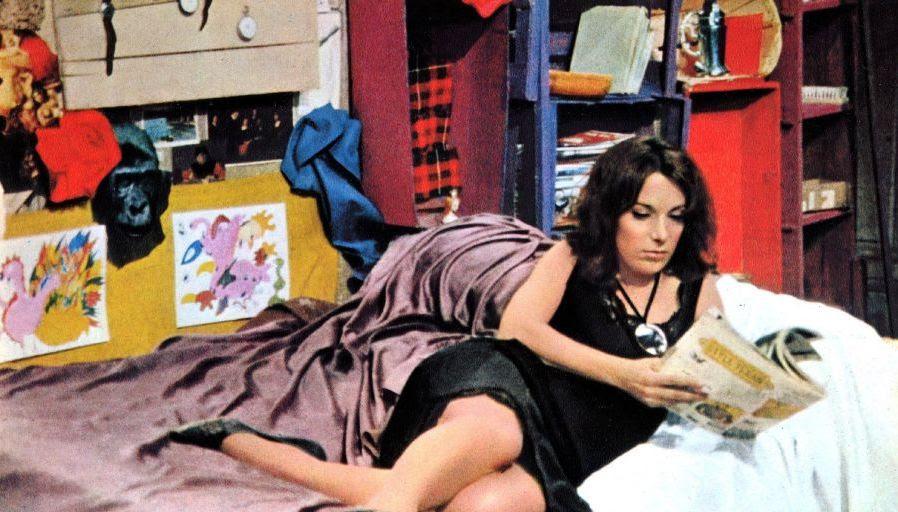Just days after I moved to New York, the Quad Cinema screened a double feature of Suki Hawley and Michael Galinsky’s “Half Cocked” and “Radiation,” two melancholic portraits of mid-to-late-’90s indie rock life that recalled films like “The Last Picture Show” and “Inside Llewyn Davis.” I had never heard of Hawley and Galinsky or their work before, and I attended the one-night-only screening basically on a whim. By the end of the night, I was converted. In the past year, I was introduced to the work of Alan Rudolph, Eduardo de Gregorio, and Joan Micklin Silver; watched such X-rated works as “Salon Kitty” and “La Grande Bouffe”; and caught up with canonized titles like “Celine and Julie Go Boating” and “Daisy Kenyon.” For this Midwesterner, it was something of a gold mine.
When Chris Wells announced his departure as Director of Programming at the Quad Cinema two weeks ago, it compelled me to reflect upon how his work has impacted me during my brief time living in New York. As a regional novice with an interest in repertory cinema, the Quad’s programming was instrumental to my assimilation into the scene, and a neat introduction to the variety of options available in the city. Series like “Crimes of Passion: The Erotic Thriller” and “Some Are Better Than Others: The Curious Case of the Anthology Film” sought to both showcase works around a common through line while also highlighting underseen works. Wells and his team routinely exhibited unheralded films within unique contexts, guiding audiences to view these texts through new lenses with appropriate context. They challenged audiences to take chances on films with offbeat sensibilities or from artists who haven’t made big impacts in the States.
Case in point: the Quad’s “Wild Things: The Ferocious Films of Nelly Kaplan,” their latest retrospective and a celebration of Nelly Kaplan, an Argentine-born filmmaker who abandoned her economics studies at the University of Buenos Aires to emigrate to France and pursue a career in cinema. In 1954, she met director Abel Gance and quickly became his professional (and personal) partner. She spent a decade in his orbit, collaborating on works like “Magirama” and “The Battle of Austerlitz,” before eventually striking out on her own. At first, she directed a series of documentary portraits, including ones on Gustave Moreau and Pablo Picasso, but soon after she moved into directing fiction features and, later, co-writing telefilms with Jean Chapot. Kaplan’s films examine the intersection of sex and the patriarchal social order, foregrounding female desire as a revolutionary act within a conservative cultural sphere.

Her breakthrough debut feature “A Very Curious Girl” (pictured at top) explores the social hypocrisy within a conservative French village after an orphaned young woman becomes a sex worker. Marie (Bernadette Lafont) toils away on a farm and mostly receives abuse and harassment for her trouble. After her mother is killed in a hit-and-run accident, she embraces self-liberation and decides to charge the men in the village for sex as payback for being treated as bait for years. The village labels her a whore and tries to run her out, but despite their public objections, none of men can resist her beguiling wiles. Every elite in the neighborhood shames her sexuality yet physically engages with it every chance they get.
Kaplan’s broad social satire mines laughs from the gap between public and private personas, as well as the inherently shallow nature of conservative values, but “A Very Curious Girl” wouldn’t make such an impact if it didn’t also have gentle reverence for Marie. She channels her bitterness into a sexual revenge plot as a survival tactic and an avenue for radical expression; she rewrites her own objectification so that she’s the hero instead of the victim. Her sweetness towards a horny mute grandfather and a film exhibitor that views her as an equal illustrates that Kaplan’s critique lies less in individuals and more in the flawed system of social propriety. If the men in the village weren’t suffering under a culture of repression, they wouldn’t be punishing women for embracing their desires. In a way, Marie liberates the village by tearing apart its social fabric, even if they refuse to heed the lesson.

The other films in the series, playing all this week, spotlight Kaplan’s diverse range in genre and tone: “Papa, the Lil’ Boats,” a 1971 caper about a beautiful heiress (Sheila White) who uses her temptress ways to confound her kidnappers; “Néa,” an adaptation of a novel by Emmanuelle Arsan, writer of the erotic “Emmanuelle” series, about a young shoplifter (Ann Zacharias) who tries her hand at erotic fiction at the behest of an older publisher (Sami Frey); the melancholic social comedy “Charles and Lucie,” about a aging married couple who inherit a luxurious mansion and subsequently reevaluate their relationship. The series also features her 1984 documentary “Abel Gance and His Napoléon,” a tribute to her mentor that chronicles the making of his 1927 epic “Napoléon,” as well as her final feature to date, “The Pleasure of Love,” about a down-on-his-luck tutor (Pierre Arditi) who falls into sexual disarray after three women pursue him during a gig on a tropical island.
Quad owner and real estate magnate Charles S. Cohen says that the four-screen theater will still showcase “restored and classic films” despite Wells’ departure and its official designation as a Landmark theater. Whether that actually happens remains to be seen, but as of now, the Quad still programs exciting work from marginalized or overlooked voices. Look no further than its Nelly Kaplan series for proof.
Wild Things: The Ferocious Films of Nelly Kaplan runs at New York’s Quad Cinema from April 12-25. For more information on the series, click here.












